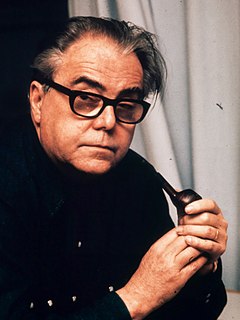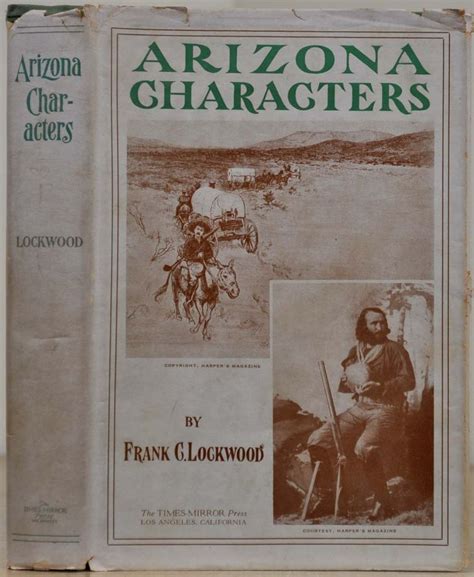A Quote by Ben Hecht
A man nearly always loves for other reasons than he thinks. A lover is apt to be as full of secrets from himself as is the object of his love from him.
Related Quotes
The cause of all the blunders committed by man arises from this excessive self-love. For the lover is blinded by the object loved; so that he passes a wrong judgment on what is just, good and beautiful, thinking that he ought always to honor what belongs to himself in preference to truth. For he who intends to be a great man ought to love neither himself nor his own things, but only what is just, whether it happens to be done by himself, or by another.
No man is happier than he who loves and fulfills that particular work for the world which falls to his share. Even though the full understanding of his work, and of its ultimate value, may not be present with him; if he but love it--always assuming that his conscience approves--it brings an abounding satisfaction.
We know that every person who is loved feels transformed, unfolded, and he unfolds everything, the most intimate as well as the most familiar, to the one who loves him as well as to himself.... The person one loves is as ungraspable as the universe, as God's infinite space, he is boundless, full of possibilities, full of secrets.
Pleasure and pain at once register upon the lover, inasmuch as the desirability of the love object derives, in part, from its lack. To whom is it lacking? To the lover. If we follow the trajectory of eros we consistently find it tracing out this same route: it moves out from the lover toward the beloved, then ricochets back to the lover himself and the hole in him, unnoticed before. Who is the subject of most love poems? Not the beloved. It is that hole.
He who gives himself to a lover because he is a good man, and in the hope that he will be improved by his company, shows himself to be virtuous, even though the object of his affection turn out to be a villain, and to have no virtue; and if he is deceived he has committed a noble error. For he has proved that for his part he will do anything for anybody with a view to virtue and improvement, than which there can be nothing nobler.
No man could bring himself to reveal his true character, and, above all, his true limitations as a citizen and a Christian, his true meannesses, his true imbecilities, to his friends, or even to his wife. Honest autobiography is therefore a contradiction in terms: the moment a man considers himself, even in petto, he tries to gild and fresco himself. Thus a man's wife, however realistic her view of him, always flatters him in the end, for the worst she sees in him is appreciably better, by the time she sees it, than what is actually there.
The fisherman has a harmless, preoccupied look; he is a kind of vagrant, that nothing fears. He blends himself with the trees and the shadows. All his approaches are gentle and indirect. He times himself to the meandering, soliloquizing stream; he addresses himself to it as a lover to his mistress; he woos it and stays with it till he knows its hidden secrets. Where it deepens his purpose deepens; where it is shallow he is indifferent. He knows how to interpret its every glance and dimple; its beauty haunts him for days.
The great object of Education should be commensurate with the object of life. It should be a moral one; to teach self-trust: to inspire the youthful man with an interest in himself; with a curiosity touching his own nature; to acquaint him with the resources of his mind, and to teach him that there is all his strength.
The common ground where the activities of God and man become one is the motive of perfect love; for in the last resolve love is the essence of God's nature. When he thinks, love is his thought; when he wills, love is the product of his will. To the degree, therefore, that man thinks and wills the good--to the degree that he realizes love in his finite dealings--he interfuses himself with God.
I have this love for Mattie. It was formed in me as he himself was formed. It has his shape, you might say. He fits it. He fits into it as he fits into his clothes. He will always fit into it. When he gets out of the car and I meet him and hug him, there he is, him himself, something of my very own forever, and my love for him goes all around him just as it did when he was a baby and a little boy and a young man grown.
The love of a wife to her husband may begin from the supply of her necessities, but afterwards she may also love his person: so the soul first loves Christ for salvation, but when it is brought to him, and finds what sweetness there is in him, then the soul loves him for himself, and esteems his person, as well as rejoices in his benefits.
Whatever a man loves he inevitably clings to, and in order not to lose it he rejects everything that keeps him from it. So he who loves God cultivates pure prayer, driving out every passion that keeps him from it. He who drives out self-love, the mother of the passions, will with God's help easily rid himself of the rest, such as anger, irritation, rancor and so on. But he who is dominated by self-love is overpowered by the other passions, even against his will. Self-love is the passion of attachment to the body.
He loves me, and I reward his love by forcing on him something he hates. In the evening, after we dance, he rarely returns to the throne; he dances with others or moves from place to place through the room. The court thinks he is trying to be gracious, sharing his attention. Only I see that he moves always to the empty spot and the court always moves after him. He is like a dog trying to escape his own tail. He indulged himself in one brief moment of privacy, and almost died of it. Relius, he hates being king.
The man who has given himself to his country loves it better; the man who has fought for his friend honors him more; the man who has labored for his community values more highly the interests he has sought to conserve; the man who has wrought and planned and endured for the accomplishment of God's plan in the world sees the greatness of it, the divinity and glory of it, and is himself more perfectly assimilated to it.






































